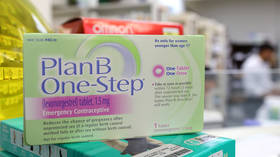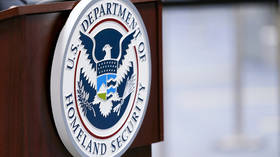US pharmacies put limit on contraception purchases

Multiple major US pharmacy chains, including Rite Aid and CVS, have temporarily limited orders of morning-after emergency birth control pills after a spike in demand in response to the Supreme Court’s repeal of federal abortion protections.
Rite Aid is capping orders for morning-after pills at three per customer, according to its website. While the site does not display any warnings or notices if a user searches for the pills, the “quantity” counter maxes out at three.
CVS similarly revealed in a statement on Monday that it was limiting sales to three boxes per transaction in order to avoid a shortage. While the chain insisted it had “ample supply” of Plan B and Aftera, two popular brands of emergency contraceptive, it cited the need to “ensure equitable access and consistent supply on store shelves” in the statement.
A spokesperson confirmed to The Guardian on Tuesday that the drugstore chain had seen a “sharp increase in the sale of emergency contraceptives” after the Supreme Court reversed Roe v Wade last week, but said the company is working on removing the limits as sales have “since returned to normal.” Customers should not worry about not being able to buy the pills, he said, insisting “We continue to have ample supply of emergency contraceptives to meet customer needs.”
Retail giant Walmart, which operates pharmacies inside its stores, told the Wall Street Journal it was limiting sales of morning-after pills like Plan B to “four or six” for delivery orders scheduled through the end of the month, though it apparently plans to ditch the cap for July orders. A representative for the company confirmed to The Guardian that “during times of fluctuating demand” its limits for online purchases change.
Not all pharmacy chains have opted to crack down on online sales, however. Walgreens said in a statement that it was not placing limits on sales, though its website was briefly sold out of the morning-after pills. “Walgreens is still able to meet demand in-store,” the chain reassured CBS on Tuesday, claiming “we are working to restock online inventory for ship-to-home.” As of Wednesday, the site appeared to have replenished its stock of at least two brands, with as many as 12 boxes of each available for delivery.
Morning-after pills work by delaying or preventing ovulation with high doses of the hormone levonorgestrel if taken in the 72 hours following unprotected sex, and are not technically considered abortion drugs. They can be quite expensive for those without insurance, however, with a single pill costing $49.99 (for Plan B) or $39.99 (for Aftera or Take Action).
Attempts to order abortion drugs online are also surging in the aftermath of the Roe reversal, so much so that Facebook and Instagram are actively removing posts from users offering to ship the pills to others living in states where abortion restrictions have taken effect. While there are several ‘telehealth’ sites offering to prescribe the drugs mifepristone and misoprostol, used in over half of US abortions, they only serve women in states where abortion remains legal, rendering them inaccessible to panic-buyers reportedly flooding social media platforms.













